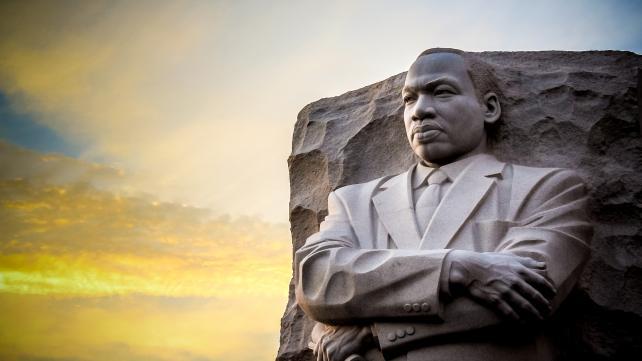
In a recent article, Role of the HBCU, I discussed the contributions that graduates of these august institutions have made to American society. One such person is Dr. Martin Luther King, Jr..
His Determination
Born Michael Luther King, Jr. on January 15, 1929, he followed the academic and professional paths of his father and grandfather, graduating from Morehouse College and undertaking a challenging career as a Baptist minister in a racially, economically and socially partitioned American society.
During the Montgomery, Alabama bus boycott that lasted for 382 days, he and his family suffered abuse at the hands of segregationists.
Upon receiving The Nobel Peace Prize in 1964, his thrust for the rights of African-Americans was accented by traveling over six million miles, suffering 20 arrests and delivering 2,500 speeches from 1956 to 1968.
Reviewing his life, one is struck by his commitment to equity and social justice for all people. Although recognized as a distinguished civil rights leader, his ultimate contributions were more universal in scope. The first of these was patience.
We are aware of the Montgomery Bus Boycott, but probably never thought about it lasting for more than a year. Imagine the challenges faced by Dr. King and his supporters, who had to manage their lives without public transportation and few personal automobiles to use.
This is an example of the patience and extreme sacrifices that are sometimes necessary to bring about meaningful change in a non-egalitarian society.
In the ubiquitous presence of the "Big Lie," we have similar challenges today. We have to create effective methods to identify and confront the racial, economic, and social partitioning ideals being advanced by selfish and greedy power seekers; those who crave individual wealth and power at the expense of equity and justice for all.
"I Have a Dream"
On August 28, 1963, Dr. King delivered his now famous "I Have a Dream" speech. The contents of this oration exemplifies his immediate concern for racial equality, and implies his awareness of a much larger concern than integration--equity and social justice for all citizens of America.
During this oration Dr. King directly addresses racism and segregation in our country. He says, “Now is the time to rise from the dark and desolate valley of segregation to the sunlit path of racial justice.”
He develops another theme in this speech, one that speaks to a greater measure of human worth than skin color. He says, “I have a dream that my four little children will one day live in a nation where they will not be judged by the color of their skin but by the content of their character.”
He engages his listeners in American ideals and thereby sparks an awareness in their consciousness. “I have a dream that one day this nation will rise up and live out the true meaning of its creed — we hold these truths to be self-evident: that all men are created equal.”
After identifying the malaise of racism in America, and calling one’s attention to a more accurate measurement of a man's worth, Dr. King warns our nation of the consequences of continued discriminatory practices. “The whirlwinds of revolt will continue to shake the foundations of our nation until the bright day of justice emerges.”
The crescendo of this presentation is his call for social justice. “Now is the time to make justice a reality for all of God’s children.”
In the shadow of chattel slavery, attempted genocide of Native Americans, and forced removal of their children to boarding schools, the forcing of Japanese-Americans into concentration camps during WWII, and denial of Asians and Hispanics unfettered access to opportunities of citizenship, Dr. King says, "Now is the time to lift our nation from the quicksands of racial injustice to the solid rock of brotherhood.”
Closing this presentation, Dr. King dramatically summarized the urgency for people of all races, faiths, and social-economic status to recognize that Social Justice has to be the ultimate goal of life in America. He said, “When we allow freedom to ring, when we let it ring from every village and every hamlet, from every state and every city, we will be able to speed up that day when all of God’s children, black men and white men, Jews and Gentiles, Protestants and Catholics, will be able to join hands and sing in the words of the old Negro spiritual: “Free at last! Free at last! Thank God Almighty, we are free at last!”
Universal Guidance for the Future
Dr King's efforts to emphasize the all-inclusive aspects of the struggle for human rights became more visible in November of 1967. Recognizing that oppression of human potential transcended race, he announced plans for a Poor People's Campaign. This initiative was designed to petition the government for adequate employment opportunities, unemployment benefits and education for all citizens which would improve social-economic conditions of disadvantaged Americans.
Dr. Martin Luther King Jr. should be recognized as more than a Civil Rights leader. In addition to identifying and encouraging the elimination of the terrible effects of discrimination, his contributions to American society also serve as a reminder of the need for social justice. Now, more than 50 years after his death, his life's work serves as a beacon of light guiding America to a future that can only be imagined.


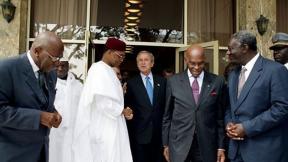
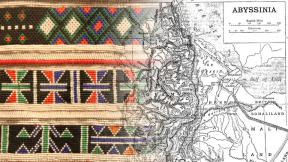
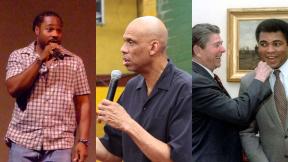
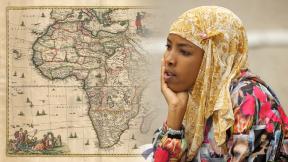


Add new comment